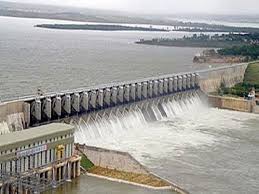New Delhi: The Mahanadi Water Dispute Tribunal (MWDT) Saturday advised Odisha and Chhattisgarh governments to either resolve the dispute amicably or “abide by whatever judgment we pronounce in the interim application dated March 9.”
A three-judge bench comprising tribunal Chairperson AM Khanwilkar, Justices Ravi Ranjan and Indermeet Kaur concluded the hearing in the interim application filed by Odisha seeking stay on the ongoing barrage projects in Chhattisgarh and to ensure minimum flow of 1.74 million acre feet (MAF) during non-monsoon months, between November and May.
“For interim arrangement, the officers and technical experts from the riparian states will discuss to resolve the issue. If parties are not ready for amicable settlement, then the tribunal will pronounce the judgment,” the bench observed.
The tribunal also directed the states to file written submissions within two weeks.
During the hearing, the state government counsel presented a three-month data of water flow in River Mahanadi. Accordingly, the flow of Mahanadi water into Odisha in November was 0.137 MAF, in December 0.142 MAF and January 0.414 MAF. The total flow in the last three months was 0.414 MAF.
Significantly, counsel for Odisha Mohan Katarki said the flow of Mahanadi during non-monsoon months in the state from 2005 to 2015-16 was 1.2 MAF. But the flow reduced to 0.7 MAF in 2017-18 post construction and operation of barrages in Chhattisgarh.
“I shall get 1.74 as total during non-monsoon months on the border. There is acute shortage of water during non-monsoon months in the state,” Mukul Rohtagi submitted to the tribunal while appearing for Odisha.
Notably, the Chhattisgarh counsel said four barrages – Kalma, Samoda, Basantpur and Mironi – are in operation since 2016 and 2017 while the constructions over the remaining barrages – Saradih and Sheorinarayan – have been completed.
Meanwhile, the counsel for Chhattisgarh submitted that the figures produced by Odisha are not accurate. He denied that there was any agreement pertaining to assurance of minimum flow of water to Odisha and said there is no obligation. Odisha has been feeding industries with Mahanadi water, he added.
“What is the injury (due construction of barrages)? Where is injury? If you say you cannot generate hydropower then that is not the injury,” Chhattisgarh counsel submitted.
However, the tribunal in oral observation stated that they will only focus on barrages and whether they are responsible for the injury.
“If barrages are responsible then it is a matter of debate,” bench observed and sought Odisha’s explanation “about the injury caused to it due to construction of barrages”.
PNN







































